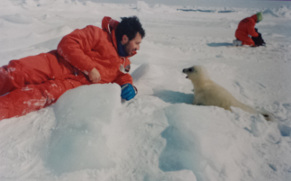After decades of campaigns, in 2009 the European Union adopted Regulation 1007, which prohibits the trade in seal skins and products throughout the Union.
This ban was immediately challenged by Norway, Canada and Iceland, which asked the Dispute Settlement Body of the World Trade Organisation (WTO) to declare this ban illegal under the rules of international trade.
On 25 November, the WTO panel determined that the EU Seal Regime is a technical regulation, and that the EU Seal Regime does not violate Article 2.2 of the Technical Barriers to Trade Agreement because it fulfils the objective of addressing EU public moral concerns on seal welfare to a certain extent, and no alternative measure was demonstrated to make an equivalent or greater contribution to the fulfilment of that objective.
This ruling is not only important in protecting seals, but also because it sets a precedent by recognising that public moral concerns on animal welfare can be a valid justification for establishing import bans over specific products.
The WTO panel’s ruling can be appealed until the end of January. If that doesn’t happen, it is definitive and the EU will only have to modify a couple of minor points in the text of the Regulation to fully comply with it.
You can read the full report of the panel and a technical summary of the dispute on the WTO website.
Key facts on the trade in seal products and bans around the world are available on the IFAW website.


